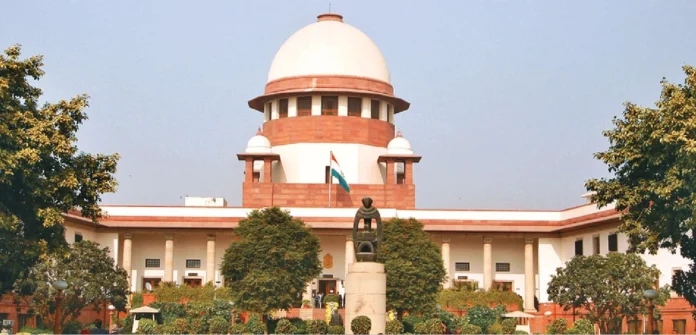By Binny Yadav
In a democracy built on the rule of law, the independence of the legal profession is the invisible scaffolding that holds justice upright. Yet, in recent years, that structure has come under strain. Advocates defending accused persons have increasingly found themselves not as defenders, but as suspects—summoned by agencies like the Enforcement Directorate, Central Bureau of Investigation, and National Investigation Agency. Across court corridors in Delhi, Mumbai, and Kolkata, a question has echoed: “If the lawyer is not safe, who will defend the accused?”
On October 31, 2025, the Supreme Court provided a decisive answer. Acting on its own motion, the Court drew a constitutional boundary around the professional space of advocates, ruling that lawyers cannot be summoned by investigative agencies merely to provide information or evidence protected by advocate-client privilege.
The verdict, authored by Justice K Vinod Chandran and delivered by a bench led by Chief Justice of India BR Gavai, goes beyond procedural correction—it is a powerful reaffirmation of professional freedom and constitutional integrity.
A JUDICIAL REASSERTION OF INDEPENDENCE
The Court anchored its reasoning in Sections 132-134 of The Bharatiya Sakshya Adhiniyam (BSA), 2023, which mirror Section 126 of the old Indian Evidence Act, 1872. These provisions safeguard the confidentiality of all communications between lawyer and client—beyond the reach of coercive investigative tactics. Justice Chandran observed: “Advocates are not mere agents of clients, but officers of the court, an indispensable part of the justice delivery system. The privilege attached to client communications is an extension of the client’s right to a fair trial, and any intrusion upon it strikes at the foundation of justice itself.”
The suo motu action followed reports of lawyers being summoned in politically sensitive cases and corporate probes, where agencies sought details of case strategies and documents. The Court recognized this as a systemic threat to both the independence of the Bar and the citizen’s right to effective defence.
WHY THE ORDER MATTERS
This ruling redefines the relationship between the State and the Bar, asserting that the power of investigation ends where the zone of privilege begins.
Unless a lawyer is directly complicit in criminal conduct—such as aiding money laundering or tampering with evidence—they cannot be compelled to reveal anything entrusted in professional confidence.
This protection extends beyond lawyers—it shields citizens from the chilling effect of coercive inquiry. A client’s right to fair defence depends on absolute trust that their counsel cannot be pressured into disclosure.
THE CORE OF THE PROBLEM
Over the past few years, investigative agencies have blurred the line between advocate as defender and advocate as witness. In several high-profile cases, lawyers were questioned about case strategies or asked to produce confidential files—undermining the essence of advocacy.
A lawyer working in fear of surveillance cannot perform their constitutional duty of fearless representation. The Supreme Court’s suo motu action was, therefore, both corrective and symbolic—a reaffirmation that professional independence is integral to justice.
LEGAL FOUNDATIONS AND ETHICAL BOUNDARIES
In reaffirming the BSA’s protections, the Court made it clear that privilege belongs to the client, not the lawyer, placing it on the same footing as the right to silence or a fair trial.
The Court also invoked Rule 11, Section 20, Part VI of the Bar Council of India Rules (1975), which forbids disclosure of client communication, calling it both a statutory and moral duty.
However, Justice Chandran cautioned that privilege is not a “carpet of impunity”. Where an advocate is directly involved in illegal acts, confidentiality cannot be used as a shield.
WHO QUALIFIES AS AN ADVOCATE
The judgment further clarified that only those enrolled under Section 24 of the Advocates Act, 1961, and actively practicing before courts, can claim privilege. Salaried legal advisors or in-house counsels, though law graduates, do not fall within this definition—a distinction likely to reshape corporate compliance practices.
ROOTED IN PRECEDENT
The verdict builds upon a rich body of jurisprudence:
- Nandini Satpathy vs PL Dani (1978): Right to consult a lawyer during interrogation.
- RK Anand vs Registrar, Delhi HC (2009): Lawyers as officers of the court.
- Sahara India Real Estate Corp vs SEBI (2012): Protection of confidential client communication.
- CBI vs Anupam J Kulkarni (1992): Limits on investigative overreach.
RESTORING TRUST, REINFORCING FREEDOM
The implications of this ruling are far-reaching:
- Curb on Investigative Overreach: Agencies must now justify legal necessity before summoning an advocate.
- Protection for Clients: Ensures that strategies and advice remain confidential.
- Strengthening of Bar Autonomy: Reinforces professional independence as a pillar of democracy.
- Ethical Reinforcement: Encourages accountability and self-regulation within the Bar.
By stepping in suo motu, the Supreme Court has reaffirmed that justice cannot thrive without fearless advocacy. The judgment safeguards not only the independence of lawyers, but also the citizen’s right to be defended without fear—ensuring that the courtroom remains a sanctuary of fairness, not an extension of surveillance.
—The writer is a New Delhi-based journalist, lawyer and trained mediator


